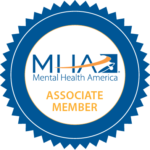Links:
- Presentation Slides
- Guide to Moral Injury
- Moral Injury What Is It and What Can Leaders Do about It?
- Moral Injury Taking Action to Prevent Moral Injury: Quick Tips for Leaders
- A Conversation Guide Helping Leaders Talk about Moral Injury
- Showing Gratitude For Your Team
- Effective Communication During times of Stress and Uncertainty
- Listen to Learn Understanding the Needs and Stressors of Your Team
- Mapping Your Assets Looking Through a New Lens
Description: Since the COVID-19 outbreak, frontline health care workers and first responders have been under considerable stress. Every day they are engaged in a balancing act making critical decisions around which patients will receive life-saving care when resources are limited, having to discharge someone earlier than recommended to avoid the risk of infecting others, or having to eliminate ‘non-essential’ care during the crisis.
Being stretched physically and mentally, and unable to provide optimum care to everyone, may lead to moral injury. Moral injury refers to the impact of extremely challenging, morally laden experiences that upset one’s value system. If not addressed, moral injury can result in long-lasting emotional and psychological damage.
Health care workers need organizational, team, and individual supports now.
The Atlas Institute for Veterans and Families and Phoenix Australia – Centre for Posttraumatic Mental Health have co-developed A Guide to Moral Injury that addresses this situation among health care workers. A practical resource for health care workers and organizations ,the guide: i) defines moral injury; ii) lays out the stressors and harms that may lead to moral injury, focusing on those prevalent in the health care setting related to COVID-19; iii) provides a framework for managing events in the workplace that can lead to moral injury; iv) outlines actions that can be taken at the organizational, team, and individual levels to mitigate and reduce the harms that can lead to moral injury; v) explores how race and culture intersect with morality and are axes of identity relevant to the experiences of moral distress and moral injury, and how racism influences health outcomes.

